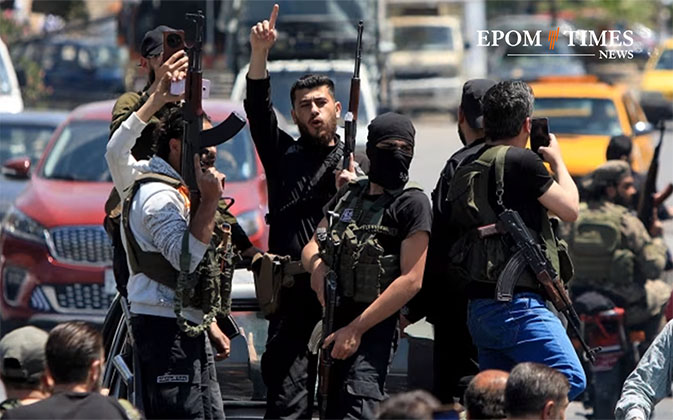Israeli forces carried out an airstrike near Syria’s presidential palace in Damascus early Friday, in what officials described as a direct response to escalating sectarian violence against the Druze minority in southern Syria.
According to Israeli authorities, the strike was intended as a warning to the Syrian government following a series of deadly confrontations between pro-regime factions and members of the Druze community. These clashes, centered in and around the Sweida province, reportedly escalated after the circulation of an inflammatory audio clip, falsely attributed to a Druze cleric, which provoked outrage among Islamist factions aligned with the government.
The targeted site was located near the People’s Palace, a key government complex in Damascus that houses the office of Syrian President Hussein al-Sharaa. While no casualties from the airstrike itself have been confirmed, the attack marked a significant escalation in Israel’s regional military posture.
Israel’s Prime Minister Benjamin Netanyahu and Defense Minister Israel Katz stated that the operation was a signal of solidarity with the Druze population and a deterrent against further aggression. “We will not allow the persecution of minorities,” Katz said in a brief statement.
The Syrian Observatory for Human Rights reported that the recent sectarian clashes have led to at least 56 deaths, including Druze civilians and members of the security forces. In response, Druze spiritual leader Sheikh Hikmat Al-Hijri condemned the violence as an act of collective punishment and called for international intervention.
The Druze community, an ethnoreligious group with a significant presence in southern Syria, has historically maintained a degree of autonomy. However, the current conflict marks one of the most severe threats to their stability in recent years.
Syrian state media acknowledged the Israeli airstrike but did not confirm whether the presidential palace itself was damaged. No official response has been issued by the Syrian government regarding the allegations of sectarian targeting.
The situation remains tense, with regional and international observers closely monitoring for signs of further escalation or retaliatory actions.



